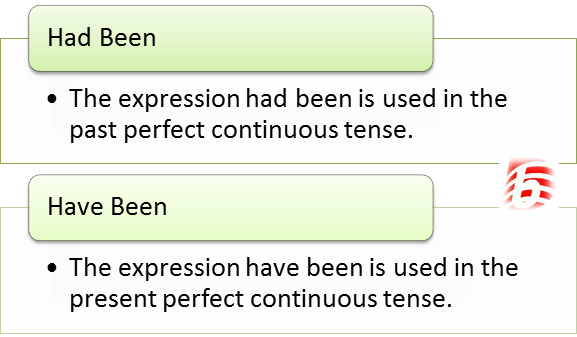Had Been vs Have Been
The difference between “had been” and “have been” is important to understand because they are closely related but have different grammatical usage. “Had been” is the past tense of “have been.” Both expressions can be used in the perfect continuous forms of present and past tenses when combined with a verb in its –ing form.
What does Had Been mean?
“had been” is used in the past perfect continuous tense, as shown in the example sentence:
It had been raining then.
In this sentence, “had been” conveys the idea of an action that was taking place when the person explaining it was present at a particular place in the past. “Had been” can also be used to convey the sense of visiting, as in:
I had been to London thrice.
In this sentence, the person visited London three times.
What does Have Been mean?
“have been” is used in the present perfect continuous tense, as shown in the example sentence:
I have been telling the truth regarding this matter from day one.
In this sentence, “have been” conveys the idea that the person has been continuously telling the truth until the time the sentence was spoken. “Have been” can also be used informally to convey the sense of visiting, as in:
I have been there.
Key Takeaways
- “Had been” is used in the past perfect continuous tense, while “have been” is used in the present perfect continuous tense.
- Both expressions can be used to convey the sense of visiting, with “had been” referring to past visits and “have been” used informally for present visits.
- Understanding the difference between “had been” and “have been” is crucial for proper grammatical usage in different tenses.
